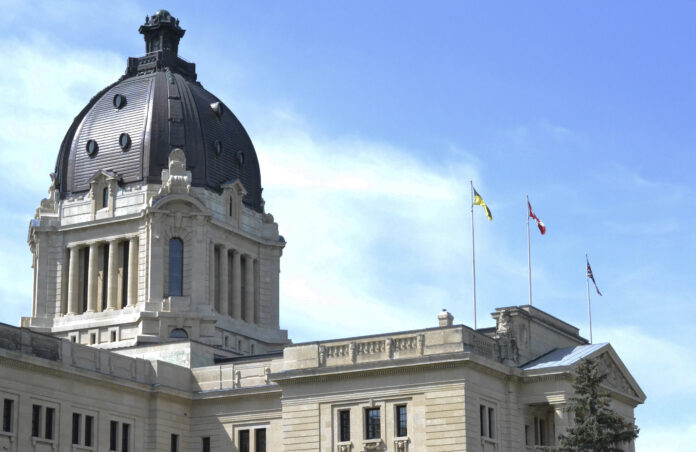The province announced Monday that monoclonal antibodies will be available to treat clinically appropriate patients who have contracted COVID-19, with the intent of preventing unvaccinated or severely immunosuppressed residents who have contracted COVID-19 from requiring hospitalization.
Monoclonal antibodies may be used in early treatment of mild to moderate COVID-19 illness in unvaccinated patients who are deemed at-risk for progression to severe illness that would require hospitalization.
Saskatchewan Public Safety Agency (SPSA) president Marlo Pritchard said the the treatment will help prevent COVID-19 patients from ending up in the ICU.
“This treatment may be used as an early treatment of mild to moderate COVID-19 illness in unvaccinated patients who are deemed at risk for progression to severe illness that may require hospitalization,” Prichard explained during a pandemic response update teleconference on Monday.
The treatment uses laboratory-made antibodies (proteins) and is intended to give those with no prior antibodies to COVID-19 an initial immune response that may prevent serious illness.
Monoclonal antibodies are laboratory-made proteins that mimic the immune system’s ability to fight off harmful pathogens like viruses and bacteria.
The province will get a monoclonal antibody product called Sotrovimab. Saskatchewan has been allocated 1,200 doses, according to assistant deputy minister of health Mark Wyatt. The province has received 476 split between Regina and Saskatoon so far.
Wyatt later said the federal government will be footing the bill.
Dr. Satchan Takaya, the physician lead for the COVID-19 monoclonal antibody project and an Infectious Diseases specialist, said this is one of three that have interim Health Canada authorization.
“It is designed to treat an early disease,” Takaya said. “We will have to make sure that you are within five days of symptoms onset. The target is to reduce that chance of progressing onto illnes.”
She said that getting people the treatment within five days stops the viral phase before it leads to the severe inflammatory phase that can cause hospitalization.
“We are looking for not just people that are unvaccinated, but people that are unvaccinated with a risk factor,” she explained.
Examples of risk factors include being over 55-years-old, having a BMI over 30, chronic kidney disease, moderate to severe asthma and oxygen saturation over 94 per cent. A full list is available from the province. As well, people who have had transplants are a risk as their body can have trouble responding to vaccines.
This treatment is only effective in the very early phase of infection.
The decision to prescribe monoclonal antibodies will be made by the treating clinician, based on criteria established by the product monograph and the published clinical guidance.
It is for COVID-19 patients who have not been vaccinated and certain immunocompromised or immunosuppressed COVID-19 patients regardless of vaccination status.
Monoclonal antibody treatment is a one-time treatment and delivered intravenously.
These treatments will be available in Saskatoon and Regina, and only through existing SHA testing and treatment sites. These locations are currently staffed and supplied to safely manage COVID-19 patients.
Pritchard said you must be referred for treatment based on the eligibility criteria. He added that the SH plans to assess demands and the appropriateness of the treatment before expanding to other parts of Saskatchewan.
At the start, eligible patients will be identified through the case investigation process. Beginning Nov. 1, people who test positive for COVID-19 can self-assess their eligibility for monoclonal antibodies by visiting the province’s website.
If they are eligible, they will be directed on next steps for booking a further assessment. The final decision to prescribe monoclonal antibodies will be made by clinicians.
The best defence against COVID-19 remains vaccination.
“I want to reiterate that this treatment for COVID-19 is not a substitute for vaccination,” Pritchard said. “I encourage everyone who is eligible to get vaccinated.”
Contracting and being treated for COVID-19 does not offer an equivalent protection to vaccination. All patients receiving monoclonal antibodies will be eligible for COVID-19 vaccination 90 days following treatment.
12 C
Prince Albert
Friday, April 26, 2024


